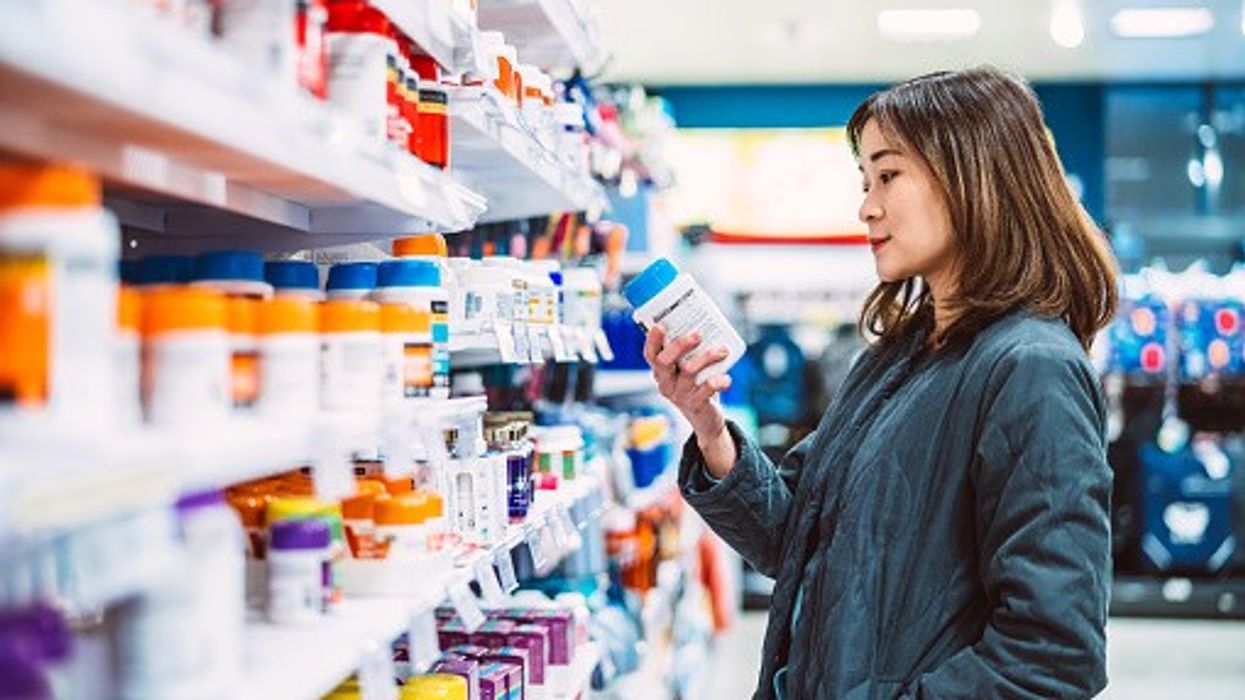Applications are invited for reclassification of prescription-only medicines to pharmacy medicines in these therapeutic areas
The Department of Health and Social Care (DHSC) has published a list of health conditions and categories, where medicines could be reclassified from ‘available only on prescription’ (POM) to ‘available in pharmacy’ (P) or over-the-counter to support patients in self-care and improve access to much-needed medications.
Companies are now being encouraged to apply to the Medicines and Healthcare products Regulatory Agency (MHRA) for reclassification of relevant medicines in these areas.
Six broad health conditions have been identified as suitable for medicine reclassification based on international practice and real-world evidence. These include treatments for allergies, pain management, skin problems, digestive disorders, women's health and oral health.
These conditions were identified following consultation with the Conditions & Category Working Group, comprising government representatives, the NHS, clinicians, pharmacists, and industry experts, in 2024.
The Royal Pharmaceutical Society (RPS) is a member of the working group, which has worked with the MHRA to identify medicines that could be safely reclassified.
After receiving applications, the MHRA will assess each medicine product individually and will only grant reclassification if it is considered safe and appropriate.
Understand medicine reclassification
Reclassification allows medicines to move from prescription-only status to being available in pharmacies or over the counter. This shift enables patients to access necessary treatments more conveniently without having to visit their GP. It also empowers pharmacists to support patients in self-care for common conditions, reducing pressure on primary care services.
RPS President Professor Claire Anderson welcomed the department’s move to reclassify more medicines, noting that it will provide people with “easier access to treatments for a range of symptoms and encourage self-care.”
“Diagnosing and discussing health problems with patients and advising on the benefits and risks of treatment options are integral to the role of the pharmacy team.,” she said.
Professor Anderson emphasised that enabling POM to P switches is crucial in managing primary care demand, as it helps minimise unnecessary GP appointments and A&E attendances for minor conditions and ensures patients receive timely treatment from community pharmacies.
She assured that the RPS will continue working closely with the MHRA and manufacturers to provide guidance, ensuring patient safety.
Bosting self-care could save NHS £1.7 billion annually
Research conducted last year by PAGB, the consumer healthcare association, representing over-the-counter manufacturers, revealed that nearly a quarter of Britons still do not view self-care as their first option for easy-to-treat conditions. The study also highlighted that younger adults tend to lack the confidence in self-care that older generations have.
Michelle Riddalls, CEO of PAGB, stressed the importance of raising awareness about self-care and encouraging patients to seek advice from pharmacies for minor health concerns, helping to alleviate pressure on A&E departments.
Additionally, a study by Frontier Economics, commissioned by PAGB, estimated that greater reliance on self-care and the accessible expertise of high street pharmacies could save the NHS at least £1.7 billion annually in avoidable appointments and prescription costs.
Identified health conditions and medicine categories for reclassification
Conditions
- Short term sleep aids
- Oral health
- Pain management (migraine, osteoarthritis, pain relief /joint pain)
- Allergic rhinitis
- Skin (acne, eczema, psoriasis)
- Conditions that affect women’s health
Indications
Gastro:
- Heartburn
- Preventative indigestion
- Stomach protection
Skin:
- Acne
- Actinic Keratoses
- Eczema
- Psoriasis
Women’s Health:
- Heavy periods / Menorrhagia
- Intimate fungal skin infections
- UTI (non-antibiotic treatment)
The MHRA has confirmed that it will not consider reclassification applications for medicines containing opioids or antibiotics.
How to Apply
Companies interested in reclassifying a medicine can find detailed guidance on the GOV.UK website under Medicines: Reclassify Your Product. For further inquiries, they can contact the MHRA at variationqueries@mhra.gov.uk.













